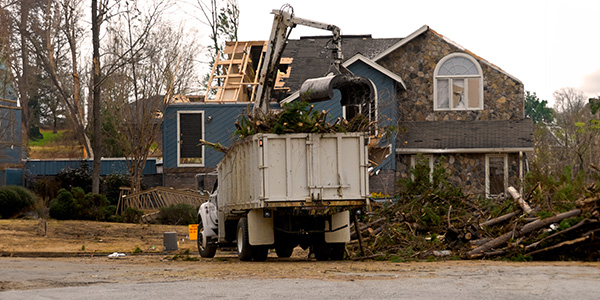Homeowners
Homeowners Insurance Basics: For the New Home Buyer
May 3, 2012
When buying a new home, the mortgage lender will require proof of homeowners insurance coverage. A homeowners insurance policy is a package policy covering:
- Any damage to your property, or your belongings in it, and provides financial protection against certain disasters.
- It also provides personal liability protection for claims resulting from bodily injuries and property damage to others caused by an accident on your property or your activities elsewhere.
Homeowners insurance is a cost you want to consider when buying a new home. Policies and protections differ, so you want to be sure to find the right protection for your home at a reasonable price. The right policy for you will depend on your home, and how much coverage you feel is necessary.
Types of Homeowners Insurance
When it comes to homeowners insurance, there are several basic forms to choose from; each offers a different level of coverage. Homeowner's insurance policies may name the specific perils they cover, and may also exclude certain perils. There is usually a deductible when filing a home insurance claim unless otherwise noted in the policy.
The policies explained below apply to homeowners who live or plan to live in their homes.
HO-1: Basic Form
This is a "bare bones" policy covering specific perils including fire, theft, and certain types of liability. Most states no longer offer this home insurance policy. This is termed a "named-peril" policy as the policy only covers those perils specifically included.
HO-2: Broad Form
This is a more comprehensive named-peril policy as it covers everything in the HO-1 policy, plus it offers protection against damage from broken pipes, the weight of ice and snow, and broken hot water heaters.
HO-3: Special Form
It's a step up from the HO-2 as it protects your home from all perils except those that may be specifically excluded such as earthquakes, floods, nuclear accidents, and wars. For this reason, it is termed an "open-peril" policy as it includes coverage for all damage to the home unless specifically excluded. However, the personal property still maintains a named perils-only status.
HO-5: Premier Form
This policy is also an open-peril policy much like the HO-3 except that personal belongings also have an open-peril status; so all personal property is covered unless specifically excluded.
HO-6: Unit-Owners Form
Designed for those purchasing a condo, this policy ensures items not insured by the association policy, and the personal property inside the unit, and includes liability insurance should anyone file a claim due to an injury occurring in the unit.
HO-8: Modified Coverage Form
This named-peril policy is intended for older homes that would be difficult to replace should any damages occur. For this reason, the policy usually reimburses damages on an actual cash value basis, meaning replacement costs less depreciation.
Actual Cash Value vs. Replacement Cost Policy
It's important to note the difference between an actual cash value policy and a replacement cost policy. A replacement cost policy is designed to repair damages done to your home less the deductible. The actual cash value policy will provide funds to repair damages to your home, less the deductible and less the depreciation. Often you can choose, and the actual cash value policy tends to be cheaper, however, this may be a riskier move if you have an older home.
Earthquakes and Floods
Most standard policies do not cover earthquakes and floods so if you live in an area prone to these types of natural disasters, consider buying a special insurance policy or endorsement to cover them.
Not Covered in Homeowners Insurance
Some disasters are typically not covered in a homeowners insurance policy including injuries to animals, damage to motor vehicles and aircraft, damage from war or nuclear hazards, neglect, power failures, and more.
Endorsements
These are customizations to your policy, allowing you to remove certain provisions or add extra protection at an additional cost. Below are some of the examples of common endorsements:
- Guaranteed replacement cost endorsement: will cover the cost to rebuild your entire home
- Personal property replacement cost endorsement: will cover the cost to replace your personal property
- Inflation guard endorsement: will raise the dwelling coverage limit annually to keep up with inflation so you maintain enough coverage to replace your home in the event of a loss
- Ordinance or law endorsement: will cover the extra expense to rebuild your home in compliance with new building codes and ordinances
A Look at the Homeowners Insurance Declarations Page
The typical homeowner's insurance declaration page is broken down into two major parts:
1. Home Insurance Property Protection
- Dwelling - Covers your home, attached structures, built-in appliances, plumbing, heating, installed air conditioning systems, and electrical wiring
- Other Structures - Covers detached structures such as sheds, garages, fences, driveways, patios, etc.
- Personal Property - Covers your personal belongings inside your home
- Loss of Use - Covers some living expenses should you be living elsewhere while repairs are being made
2. Home Insurance Liability Protection
- Personal Liability - Covers your financial loss should someone sue you or your family members for bodily injury or property damage
- Medical Payments - Provides no-fault medical coverage should a friend or neighbor be injured in your home
All in all, when looking for the homeowner's insurance policy that suits your needs, you'll need to consider what you want to cover, from your personal belongings to earthquakes, how much coverage you feel you need, and talk to your insurance agent to find the right policy match.
If you have any tips for those who might be in the process of evaluating homeowners insurance policies, please share them below!




